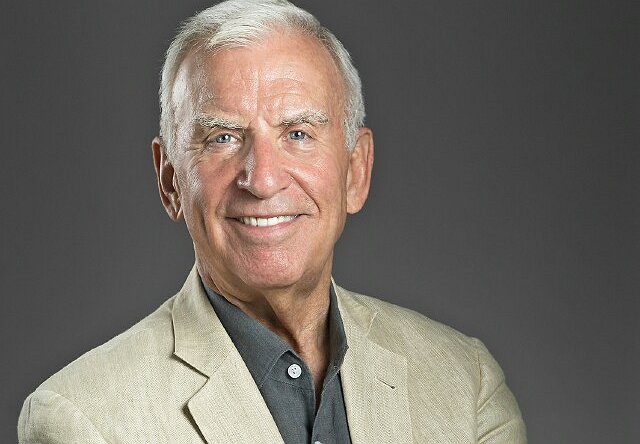Source: Media Village, January 2019
Editor’s note: MediaVillage is pleased to welcome back Michael Farmer as weekly lead columnist for our new Creativity Village platform. To submit requests to Michael for interviews, contact E.B. Moss at eb@MediaVillage.com. Michael (pictured above) sat down with Jack Myers, founder of MediaVillage, for a wide-ranging discussion of the prospects and challenges of the advertising industry. This is the first of two articles; the second will appear next week.
Jack Myers: Michael, you wrote “Madison Avenue Manslaughter” in 2015, with a second edition in 2017 and a third edition due for 2019. What accounts for three editions in four years?
Michael Farmer: I never expected to be revising the original book twice in four years, but the rate of industry change has been accelerating. The first edition, in 2015, documented the long, slow decline of agency-client relationships from the good old media-commission days, when agencies were highly paid and respected strategic partners, to today’s fee-based mess, where agencies are treated like low-paid commodity vendors who can be changed at will. The second edition (2017) documented the impact of Jon Mandel’s 2015 ANA speech, where he accused media agencies of receiving media rebates, kickbacks and other incentives that were adverse to their client’s interests. This led, as you know, to a rapid erosion of trust — the “transparency” crisis. The new third edition, coming in 2019, documents something that I have feared: holding company share declines and the possibility of holding company break-ups. In 2018, WPP’s share price dramatically declined, Sir Martin Sorrell left the company and there were further industry upheavals due to spending cuts, in-house agencies and competition from consulting firms.
Jack: You’ve been consulting to ad agencies and their clients. Are there any signs that agencies are coming to grips with their problems?
Michael: I wish this were the case. Advertisers are suffering from brand stagnation, and they need new growth strategies from their ad agencies. Agencies, though, are suffering, and they cannot carry out their work in a quality way. It’s a lose-lose situation. Advertisers and agencies are cutting costs to solve their problems, but cost reductions are actually making their problems worse.
Jack: What do you mean by this?
Michael: Advertisers are making up for the shortfall in brand growth by cutting costs. It’s a crude way to increase brand profitability, but it is not a long-term solution. At some point, they’ll have to figure out how to grow their brands again. Agencies are dealing with client fee cuts by downsizing — firing their most expensive people and cutting headcounts, liquidating their capabilities to serve the profit needs of their owners.
Jack: What do you think they should be doing?
Michael: Well, for one thing, agencies should try to be paid for all the work they do. This is the only industry in the world where the key suppliers — ad agencies — do not have a firm understanding of how much work they are doing. Agencies do not document how much work they do for a given fee. They let their clients dictate fees and Scopes of Work. It’s hard to believe, but it’s true. The “business of running an agency” is handled in an incomplete way.
Jack: Surely, though, agency CEOs are coming to grips with fee problems, aren’t they?
Michael: Not in my experience. CEOs worry about new business development — winning new clients and meeting their holding company targets for the year. They have a low interest in getting involved in “how the agency factory is running.”
Jack: The agency “factory?” You don’t seriously mean that ad agencies are “factories,” do you?
Michael: Jack, all businesses are factories, even if they are highly creative and sophisticated. Hollywood is a factory that finances and distributes films. Amazon is a factory that inventories and delivers products. BMW is a factory that designs and assembles high-quality automobiles. Apple is a factory that develops and manufactures iPhones, iPads and Mac computers. Ad agencies develop and deliver strategic, creative and media deliverables that drive client brand growth. Among these companies, only ad agencies do not see themselves as factories, and they don’t measure their operations accordingly. They deliver products, but they do not know anything about the quantities.
Jack: How does this hurt them?
Michael: If you do not know how much product you are making, then you cannot know what price you are getting. The price agencies are being paid for their “deliverables” has declined by 63% since 1992. That’s because workloads are growing and fees are being cut. If agencies were being paid for the work they do, their fees would be rising.
Jack: What about the holding companies?
Michael: Agency business practices put their holding companies at risk. Holding companies cannot be “better” than the agencies they own. If their agencies have lost control of pricing and are downsizing to generate profits, then the holding companies suffer. Sooner or later, holding companies will fail to grow. That’s what happened at WPP in 2017 and 2018.
Jack: You don’t paint a very optimistic picture for the industry.
Michael: The industry needs to change. There will always be a need for independent marketing partners, serving clients who have brands that need to grow. The industry can thrive again. What’s likely to change are the players and the strategies.

